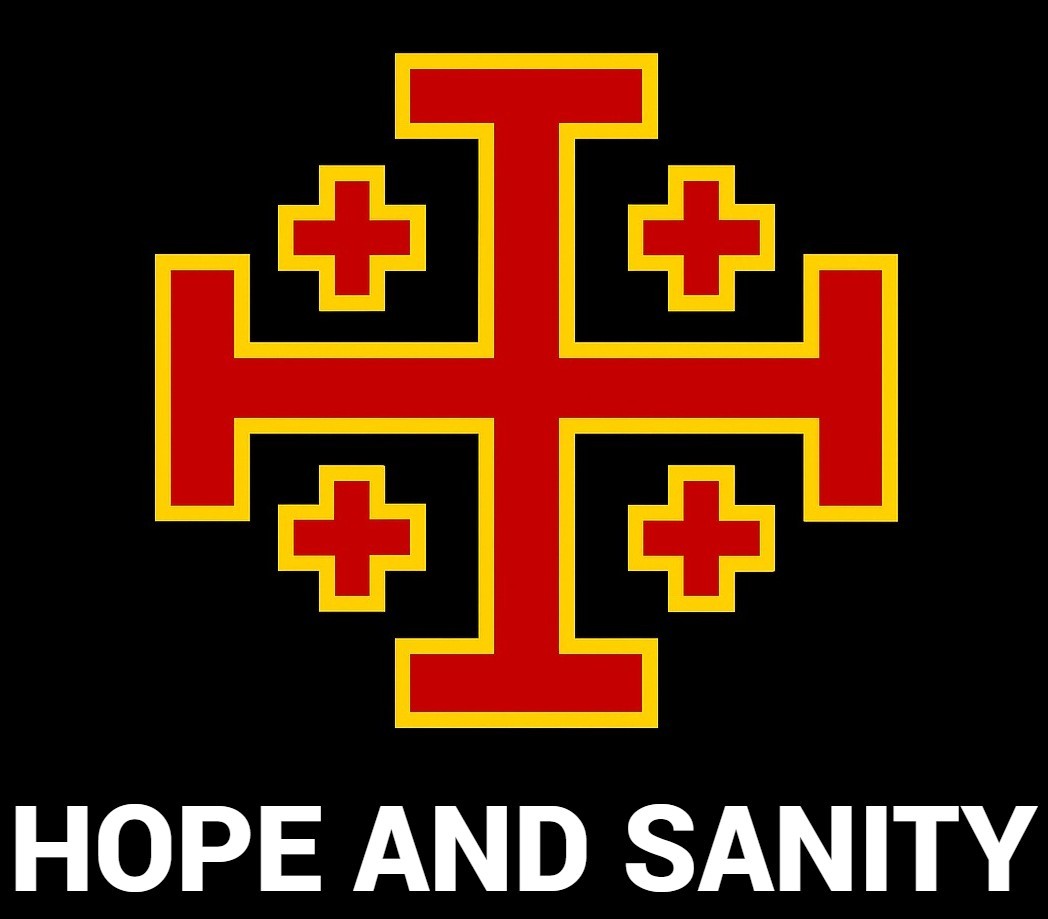
God’s Answer
A man in Luke’s Gospel asks Christ a bold question: will many be saved, or only a few? Christ does not respond to this question with a rebuke, or with another question. He answers:
“Strive to enter by the narrow gate; for many, I say to you, shall seek to enter, and shall not be able” (Luke 13:23-24).
What are we to make of this? Firstly, we must recognize that Christ chose to respond to this question. He typically reserved His rebukes and counter-questions for people asking questions in bad faith or stepping out of line. He saw fit to give this question an answer. That means this is a legitimate, even pious question. It implicitly asks, “Lord, what type of life is pleasing to you?” acknowledging the fact that we are hopeless to judge such things for ourselves. The lukewarm Christian often sees the living saint as a complete psychopath rather than a role model because his behavior is such a rarity. Yet, if salvation is a rarity, then we must act as men rarely do to attain it! And that leads to the second point: we must understand His answer is clear. The gate is narrow. Many will not pass through it.
Is this, perhaps, some wordplay? Did I just choose a verse to make a point, ignoring context? To the contrary. Matthew records Him using the same metaphor with even more clarity, and unprompted: “enter through the narrow gate; for the gate is wide and the road is easy that leads to destruction, and there are many who take it. The gate is narrow and the road is hard that leads to life, and there are few who find it” (Matt. 7:13-14). Elsewhere, the Lord concludes a parable about salvation by saying that “many are called, but few are chosen” (Matt. 22:14).
Further still, the remainder of Holy Scripture affirms His words. In the Great Flood, only eight of the human race survived. God only saved four from Sodom and Gomorrah – and even one among them was lost upon looking back. Out of the whole earth, God only chose Israel. Out of the millions who left Egypt, only Caleb and Joshua made it to the Promised Land. Rahab and her family are the only ones to survive the judgment of Jericho. Out of the twelve tribes of Israel, Assyria destroyed ten that went into schism. Isaiah compared the saved to grapes left after the pickers have passed. St. Peter wrote that “[even] the just man is scarcely saved.” St. Paul wrote that fornicators, idolaters, (active) homosexuals, thieves, misers, drunkards, gossips, and cheats – how great a number of mankind falls into at least one of these descriptions? – are reprobate.
Christ’s words agree with the saints, who take a practical position on the subject. St. Augustine, interpreting Luke’s Gospel, said “[it is] doubtless there are but few who are saved.” Venerable Lucy of Fatima said, “taking into account the behavior of mankind, only a small part of the human race will be saved.” St. Thomas – following similar premises – bluntly stated in the Summa that “[the] saved are in the minority.” And of course, their points make sense in light of infallible tradition, which, codified succinctly at the Council of Florence, states that there is no salvation outside of unity with the Catholic Church (though of course, in rare cases, unity may not be visibly apparent). Yet even among Catholics – armed with the fullness of truth and the sacraments – how few are willing to follow her teachings on contraception, gossip, masturbation, Sunday Mass attendance, and so on?
But Why?
The saved are few indeed. But this is not due to some negligence on God’s part. God follows sinners like a despised lover, begging them to repent. If there is a failure to love, is it in the scorned, or the one who scorns? It is not God who treats us like enemies, but we who treat Him like an enemy with our sins. It is on account of this that few are saved. And how can we know whether we behave like this? It is not so difficult to discern:
Are our mouths occupied with thanksgiving, or with complaining? Does prayer entertain us, or do those things which Christ died to save us from entertain us? Are we concerned with compassion for those who depend on us, or with flattering those who can aid our ambitions? Is prayer a priority, or is our current hobby? Are we concerned with protecting the chastity of your brothers and sisters, or do we carelessly invite sin with immodest, skin-tight, revealing clothing? Do we applaud the arrest of those who steal bread while we pirate games, movies, and sporting events? Do we eat to sustain our bodies and fast to sustain our souls, or must our every meal be a feast?
Are we afraid to catechize our friends and families, yet unafraid to watch licentious, violent, nihilistic, blasphemous movies with them? Is Sunday a Holy day of deliberate rest, or is it the day we do our shopping? Do we drink in moderation, or does our enjoyment begin when we cross the threshold of “one too many?” Do we bow our heads at the sound of Christ’s name, or are we careless with it? Are we diligent about our Friday penance, or is Friday our night out? Are we intimately familiar with the activities of our local parish, or are we intimately familiar with this week’s outrage in Washington? Do we trust in God’s providence, or are we constantly occupied with worldly anxieties?
Do we weep for our own depravity in confession, or do we confess what others have done to us? Are we silent until we speak in charity, or must we make every idle and evil thought known? Do we flee from gossip, or are we keen to hear the most sordid doings of our neighbors? Are we willing to labor and suffer day and night for salvation, or is that effort only reserved for our finances? Do the things we own help us to serve the Lord, or do we merely buy what gratifies us? When wronged, do we suffer in peace and wish our enemy well, or do we sacrifice our peace to retaliate? Do we forgive our neighbors earnestly and joyfully, or do we hold a grudge? Are we constantly, fervently praying for the conversion of our friends and families, or does their mere temporal satisfaction tranquilize us?
Do we rest peacefully under the yoke and shelter of Christ’s commands, imitating Him everywhere and at all times, or do we live a double-life?
Judgment
What follows is a paraphrase of St. Alphonsus, doctor of the Church, regarding particular judgment:
God appoints men to die once, and after this, judgment. It is the common opinion of the theologians that at the very moment and in the very place in which the soul departs from the body, the divine tribunal is erected, the accusation is read, and the sentence is passed by Jesus Christ, the Judge. At this tribunal, each of us shall give an account for every thought, every word, and every deed. On this judgment hangs eternity. Nearing death, the memory of sins, the rigor of God’s judgment, and the uncertainty of salvation have made many saints tremble.
What answer shall sinners make to Christ when He says to them: I am your Redeemer and judge, whom you have despised? Where shall they escape to, when the Judge is above, hell is open below, the devils accuse them, and their conscience burns within? How can he cry for mercy who must first render an account of his contempt for the mercy Christ has shown him? With what face will he, who is first to be judged for contempt of mercy, ask for mercy?
At the divine tribunal, the poor sinner shall see himself accused by the devil. According to St. Augustine, the devil will recite the words of his profession and will charge him with his sins – the day, and the hour. He will enumerate the promises the sinner made to God, and violated. He will, according to St. Cyprian, conclude his accusation by saying that he hardly struggled to make him his slave. The sinner will find no advocate anywhere. Whatever he had on earth – nobility, wealth, tact, honor – has no weight. His guardian angel will recount how long he labored for the sinners’ salvation, and how it amounted to nothing. His very sins will scream from his conscience, saying, “you have made us, and we will not abandon you.”
If the Lord will examine every glance, every idle word, and even our good works – works of mercy, confessions, communions, prayer – with what rigor will He examine immodesty, blasphemy, gossip, theft, and sacrilege? We forget our sins; Christ does not. On that day, every soul shall see, to its great confusion, the true breadth of evils it has committed. And what shall the sinner say? That the inclinations of nature drew him to sin? How, when God would have given him every grace to resist them, if he had only had recourse to Him through the sacraments? Will the sinner say the devil tempted him? How, when the enemy is like a leashed dog, and can only bite him who steps too close? Will he advance his bad habits as an excuse? Certainly not; St. Augustine tells us our habits cannot overcome us unless we abandon ourselves.
How great shall be the joy of the man who hears Christ say, “well done, good and faithful servant?” Yet, equally great will be the anguish and despair of the guilty soul who hears the words, “depart from me, thou accursed, into the everlasting fire.” The sentence is irrevocable. Judgment is final. “Before judgment,” says St. Augustine, “the Judge can be appeased, but not in judgment. By a change of life we can now appease the anger of Jesus Christ, and recover His grace. But when He shall judge, and find us in sin, He must execute justice.”
Strive to enter by the narrow gate; for many, I say to you, shall seek to enter, and shall not be able.
